The Evolution of CRM: Custom Solutions for Modern Challenges
Customer Relationship Management (CRM) systems have undergone significant evolution since their inception, adapting to the changing landscape of business needs, technological advancements, and customer expectations. As businesses face increasingly complex challenges in managing customer relationships and driving growth, custom CRM solutions have emerged as essential tools that offer tailored functionalities to address these modern demands effectively. This blog traces the evolution of CRM systems and explores how custom solutions are uniquely positioned to tackle contemporary business challenges.
![[object Object]](https://clipl-web1.sgp1.cdn.digitaloceanspaces.com/images/clzmeq0ec00t632qg89dthstg.png)
Phase 1: Contact Management
In the early stages, CRM systems primarily focused on organizing and managing customer contact information. These systems provided basic functionalities such as storing customer names, addresses, and communication history, streamlining manual processes and improving data accuracy.
Phase 2: Sales Force Automation
CRM systems evolved to incorporate sales force automation (SFA) capabilities, enabling sales teams to manage leads, track opportunities, and automate sales processes. This phase emphasized efficiency in sales operations and pipeline management, enhancing productivity and sales forecasting accuracy.
![[object Object]](https://clipl-web1.sgp1.cdn.digitaloceanspaces.com/images/clu85bf9k004n4irzce91hblw.png)
Phase 3: Customer Service and Support
The next evolution expanded CRM functionalities to encompass customer service and support functionalities. Businesses started leveraging CRM systems to centralize customer service interactions, track service requests, and deliver consistent support across multiple channels. This phase aimed to improve customer satisfaction and retention through responsive and personalized service.
Phase 4: Marketing Automation
Modern CRM systems integrate robust marketing automation tools, allowing businesses to execute targeted marketing campaigns, manage customer segmentation, and analyze campaign effectiveness. This phase emphasizes customer engagement and relationship nurturing through personalized communication and data-driven marketing strategies.
![[object Object]](https://clipl-web1.sgp1.cdn.digitaloceanspaces.com/images/clu85gka7004r4irzd91c371v.png)
- Data Integration and Accessibility: As businesses accumulate vast amounts of customer data from multiple sources (e.g., websites, social media, emails), integrating and accessing this data seamlessly across departments and systems becomes a challenge. Custom CRM solutions offer flexible integration capabilities and centralized data management, ensuring a unified view of customer interactions and behaviors.
- Personalization at Scale: Customers expect personalized experiences tailored to their preferences and needs. Custom CRM solutions enable businesses to create personalized marketing messages, recommendations, and service offerings based on comprehensive customer profiles and behavioral insights, driving engagement and loyalty.
![[object Object]](https://clipl-web1.sgp1.cdn.digitaloceanspaces.com/images/clu85g32c004p4irz90k4e9u5.png)
- Omnichannel Customer Engagement: With the proliferation of digital channels (e.g., social media, mobile apps, chatbots), maintaining consistent and seamless customer experiences across all touchpoints is crucial. Custom CRM systems support omnichannel engagement by enabling businesses to synchronize customer interactions and deliver cohesive messaging and support regardless of the channel.
- Scalability and Adaptability: Businesses need CRM solutions that can scale alongside their growth and adapt to evolving market dynamics. Custom CRM solutions offer scalable architecture and customizable features, allowing organizations to expand functionalities, integrate new technologies, and tailor workflows to meet changing business requirements without disrupting operations.
![[object Object]](https://clipl-web1.sgp1.cdn.digitaloceanspaces.com/images/clw7br1ug003e4crz8w6ygj2t.png)
- Tailored Functionality: Custom CRM solutions are designed to meet specific business needs and operational workflows, ensuring optimal efficiency and alignment with organizational objectives.
- Flexibility and Integration: Custom CRM solutions offer flexibility in integrating with existing systems and adapting to new technologies, supporting seamless data exchange and workflow automation.
- Enhanced Data Security: Custom CRM solutions prioritize data security and compliance, implementing robust measures to protect sensitive customer information and adhere to regulatory requirements.
- Scalable Growth: Custom CRM solutions empower businesses to scale operations efficiently, accommodating growing customer bases, expanding markets, and evolving business models.
Conclusion
Custom CRM solutions represent the culmination of CRM evolution, addressing modern business challenges with tailored functionalities, flexibility, and scalability. By investing in a custom CRM solution that aligns closely with their unique needs and strategic goals, businesses can optimize customer relationships, drive growth, and achieve competitive advantage in today’s dynamic marketplace. Embrace the power of custom CRM to navigate complexities, foster innovation, and propel your business towards sustained success and customer-centric excellence.
























